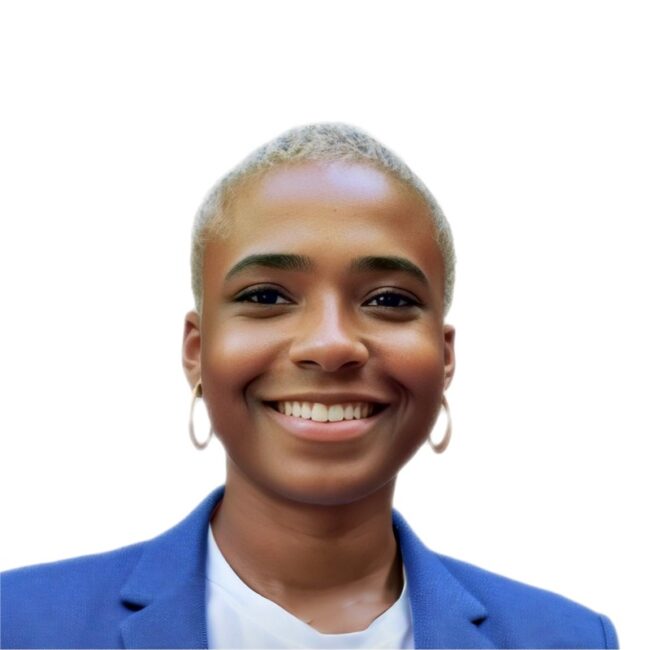MyHEAT
201-1228 Kensington Rd NW
Calgary, AB T2N 3P7
Canada
The HEAT Seat: Episode 1 with McKenna Dunbar |
Energy Justice, Equitable Electrification & Reducing Energy Burdens
In this episode of The HEAT Seat, McKenna Dunbar shares insights on energy justice and equitable electrification. With a focus on reducing energy burdens for marginalized communities, McKenna discusses their work in advocacy, policy-building, and community engagement to create sustainable, inclusive energy solutions.
Who is McKenna Dunbar?

McKenna is an advocate, activist, founder and CEO. Their work prioritizes frontline and rural communities and encompasses equitable clean energy transitions, environmental justice, grassroots initiatives, policy-building, net-zero energy solutions, and equitable climate justice for everyone.
Their roles include Electrification Lead & Community Engagement Coordinator for the Virginia Chapter of The Sierra Club, CEO of MOCOKONO (a social-entrepreneurship collaborative centered on the nexus of community, equity, and engagement in the ESG and CSR sphere), Founder of The Ecological Justice Initiative, an youth-based environmental advocacy based non-profit organization, and so much more.
With accolades from Aspen Institute, Environmental Protection Agency, ACEEE, New Buildings Institute, Citizens Climate Lobby, LinkedIn, Harry S.Truman Scholarship Foundation, and Udall Foundation, you get the idea. McKenna is part of an important movement of young leaders and it was great to delve into some of these important topics with them.
McKenna Dunbar's Journey in Energy Justice
James Henry, MyHEAT’s Director of Growth & Sustainability, first met McKenna Dunbar at a conference in 2021, and was taken by the sheer breadth of McKenna’s work; founding ecological justice initiatives, educating at The Sierra Club, amassing a wealth of compelling research surrounding the energy burden, building community among young leaders in environmental reform, the list goes on.
But beyond a cornucopia of impressive accomplishments, McKenna leads with heart and speaks openly about their own obstacles and how they inform the future they’re building now. Their own work grows from strong roots, and a personal journey grappling with climate issues.
Energy Justice & Equitable Electrification Key Takeaways
The energy burden affects consumers, communities, and has been part of McKenna’s journey too.
“My interest in this work is largely centered on having experienced the energy burden myself while I was growing up,” they shared. “A lot of people aren’t aware of this, I don’t talk about it publicly that much but I think it’s important to explain that as [there were] moments I’ve been impacted by energy burden and how that was a primary stressor in my formative years. Not having access to appropriate energy efficiency and weatherization because of being low income and living with a single mother impacted how I view these issues. I don’t talk about this experience much but I think now with the community engagement work I’ve been doing — primarily addressing energy burdens — in the central and southeast portion of Virginia talking to residents who are elderly or low income experiencing these issues, I am reflecting on it more.” McKenna really shed light on how marginalized communities, lower-income households, and elderly people experience energy burden and what it could look like to chip away the legacy of energy inequality in these sectors.
An exploration of what systemic change really looks like in the energy sector
The value of McKenna’s experience, education and research gave us real material to talk through what real, equitable change looks like.
“To see the change we want to see in 10 years, that change needs to be happening today, to have happened yesterday. The sort of large-scale systems change we’re talking about takes time, and it’s the kind of change that actually makes a difference,” James remarked, leading into a conversation that encompasses lessons for industry leaders, energy efficiency practices, and the obstacles that can distract from a unified mission.
The toll of climate anxiety and how to manage emotional well-being as a climate activist
In sharing how they’d respond to those processing climate anxiety, grief, or dealing with energy burden, McKenna shared wisdom on the way marginalized communities experience this impact in a singular way. They went on to share this inspiring message: “You are not alone, there are millions of people out there experiencing climate anxiety and eco grief – and one of the ways we can make this clean energy shift and these burdens that you’re particularly facing as a result of disproportionate impact, is simply with a conversation to raise awareness about climate anxiety but know that it’s not an individual issue.”
Do you know someone who should speak about their work in the energy sector on The HEAT Seat? Get in touch and let us know!

Improve energy efficiency program results with compelling and comparable visual heat loss and solar potential insights, at city-scale.